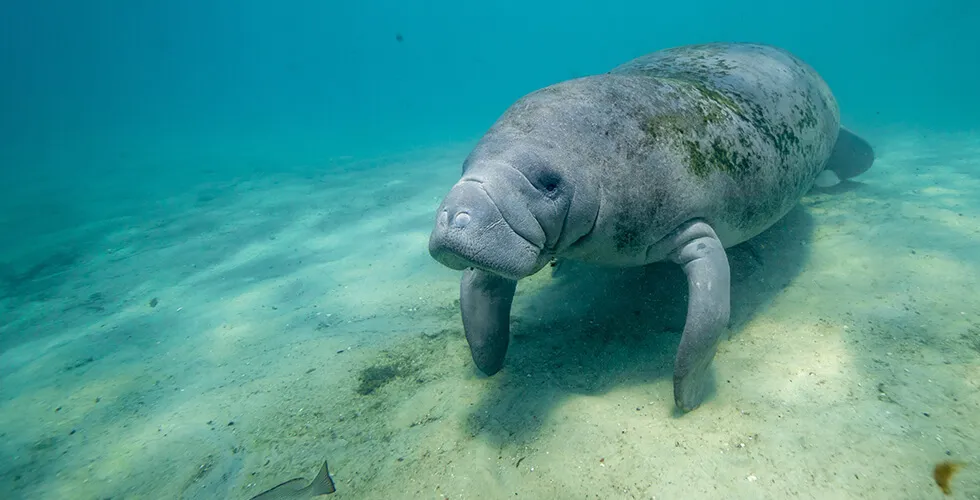
Florida’s waterways, particularly the Indian River Lagoon, have become ground zero for an environmental crisis devastating the manatee population. Rampant pollution has decimated seagrass beds—the primary food source for these gentle giants—resulting in unprecedented starvation and mortality rates.
The Root of the Crisis
Over the past decade, Florida has lost more than 89,000 acres of seagrass, with the Indian River Lagoon experiencing near-total depletion. This loss is primarily due to nutrient pollution from agricultural runoff, urban development, and wastewater discharge, which fuel algal blooms that block sunlight and kill seagrass. Consequently, from 2020 to 2022, approximately 2,500 manatees died, many succumbing to starvation.
Current Efforts
Wildlife agencies initiated emergency measures, including supplemental feeding programs that provided tons of lettuce to starving manatees. While these efforts offered temporary relief, they are not sustainable long-term solutions. Environmental organizations are also working to restore seagrass beds and improve water quality, but these initiatives require significant time and resources.
Path Forward
Addressing this crisis necessitates comprehensive strategies:
- Pollution Control: Implement stricter regulations on nutrient runoff from agriculture and urban areas to prevent algal blooms.
- Habitat Restoration: Invest in large-scale seagrass restoration projects to rebuild the manatees’ food sources.
- Public Awareness: Educate communities about the impact of pollution on marine ecosystems and wildlife.
How Citizens Can Help
Individuals play a crucial role in conservation efforts:
- Reduce Fertilizer Use: Minimize or eliminate the use of fertilizers on lawns and gardens to decrease nutrient runoff.
- Proper Waste Disposal: Ensure septic systems are well-maintained and avoid disposing of chemicals down drains.
- Support Conservation Groups: Volunteer with or donate to organizations that protect manatees and restore their habitats.
- Advocate for Policy Change: Engage with local and state representatives to support legislation to improve water quality and protect wildlife.
The plight of Florida’s manatees is a stark reminder of the interconnectedness of human activities and environmental health. Through collective action and sustained commitment, we can work toward restoring the state’s waterways and ensuring a thriving future for these gentle giants

